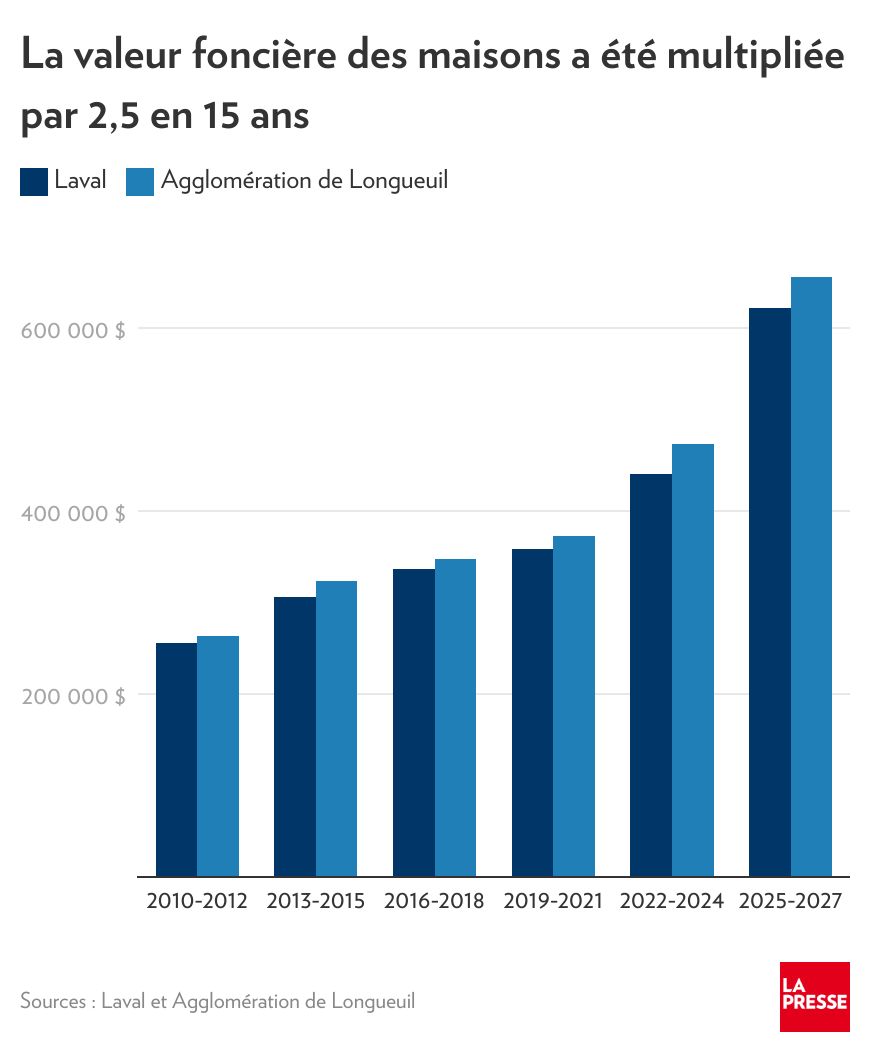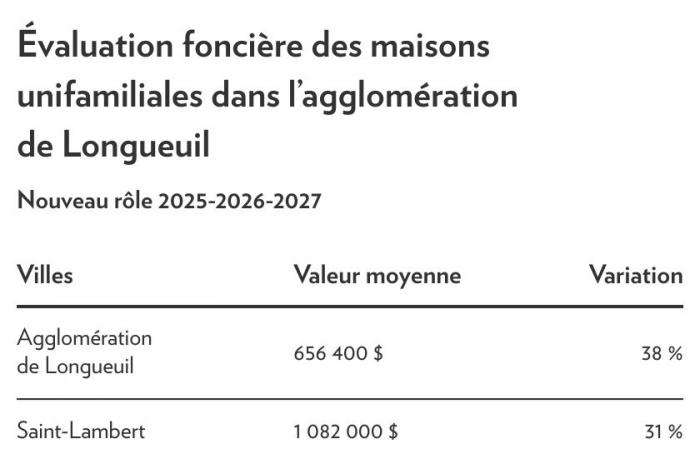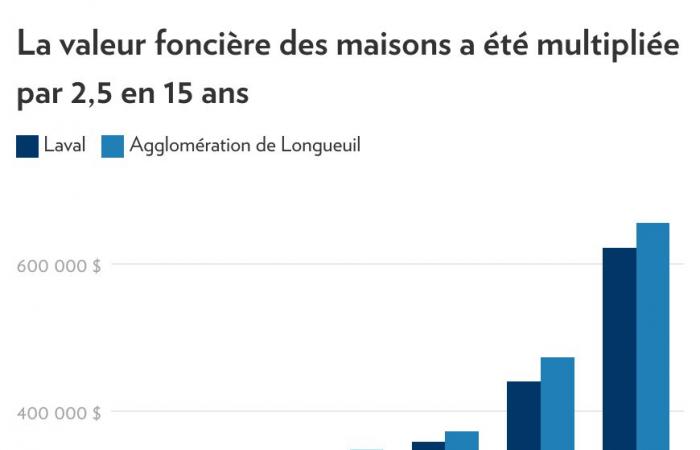My neighbors couldn’t believe their eyes when they discovered that the property value of their “semi-detached” jumped 40% suddenly, which represents $300,000. They plan to challenge this increase, which they describe as crazy and inconsistent, because municipal taxes already weigh heavily on their family budget.
Posted at 1:18 a.m.
Updated at 6:30 a.m.
The majority of Quebec cities have just revealed their new property assessment role for the years 2025 to 2027 and I predict some knee-jerk reactions accompanied by church words in the cottages.
The leap is astonishing. “For at least the last 20 years, in my opinion this is a record. It’s crazy, it’s going everywhere,” the president of the Union of Quebec Municipalities and mayor of Varennes, Martin Damphousse, told me. In his city, the average increase for the residential sector is 44%.
After meeting around thirty mayors whom he questioned about their new land role out of curiosity, he estimates that the increases are generally between 40 and 50%. There’s nothing scientific about his mini-survey, but it gives you an idea.
Every three years, Cities receive numerous calls from owners who do not understand the new role and are concerned about possible tax increases. Imagine this year…
In Trois-Rivières, where the value of housing has increased particularly significantly, the City did not even write the percentage in its press release. Rather, it indicates that the average price increases from $210,466 to $336,688. But everyone understood that the surge was close to 60%.
In the Longueuil agglomeration, where approximately 450,000 people live, the largest increase – of 40% – affects residences in the city of Longueuil. The average value of a single-family residence there has now reached $545,700, which remains half as high as in the neighboring city, Saint-Lambert. A house there is worth more than a million dollars on average. It strikes the imagination.
The situation is not very different in Laval, where the average increase is 37%. A single-family residence there is now worth $622,300, twice as much as 10 years ago. To think that some economists predicted two years ago that house prices would fall this year to 2021 levels…
The new values are always established by assessors mandated by the Cities who rely on the transactions concluded in each street, in each sector. This year, the role is influenced by the high demand caused by population growth. Other factors such as the increased interest in properties on the edge of lakes and ski slopes since the advent of teleworking also weigh in the balance.
We knew that house prices had jumped since the start of the pandemic, but as they have stabilized over the past year, the shock of owners and those looking to buy is understandable.
That said, before panicking and considering challenging the new role, we must remember that the tax bill will not follow the same curve at all, otherwise we would undoubtedly see massive sales of properties. The tax rate per $100 of assessment will be revised accordingly, taking into account the average increase in property value. If your increase is much higher than the average in your municipality, your bill will increase, and vice versa.
According to Martin Damphousse, there are “always 60% of the population whose account is falling and 40% whose account is rising, and it’s the same everywhere in Quebec.”
The new tax rates are revealed in late fall or early winter. Until then, everyone is in a fog.
Once the new tax rate is known, it is possible to contest, but solid arguments are required, because the assessor has all the figures in front of him. It is also he who defends his calculations. Before undertaking the process, ask the City for explanations on your specific case.
Still dissatisfied? According to an article published by News in 2022, the cost of a request for review varies from a few tens of dollars to $1000. It’s up to you to see if the exercise can be profitable. To put the odds in your favor, it is better to present the opinion of a certified appraiser, which costs hundreds of dollars. In the agglomeration of Longueuil, less than 1% of owners contest.
The other option is to look on the bright side: you should be able to sell your house for more than you expected. In other words, you are richer than you thought.

When we look at the data for Laval and the Longueuil agglomeration, we see that the average value of single-family homes has increased by approximately 2.5 in just 15 years.
These are averages which hide much more pronounced increases. My neighbors paid $555,000 for their semi-detached house six years ago. It is now estimated at 1.2 million. This does not help them repay their mortgage or their taxes, which are expected to increase since their increase is above average. But they can always console themselves by telling themselves that their purchase is a good investment.








